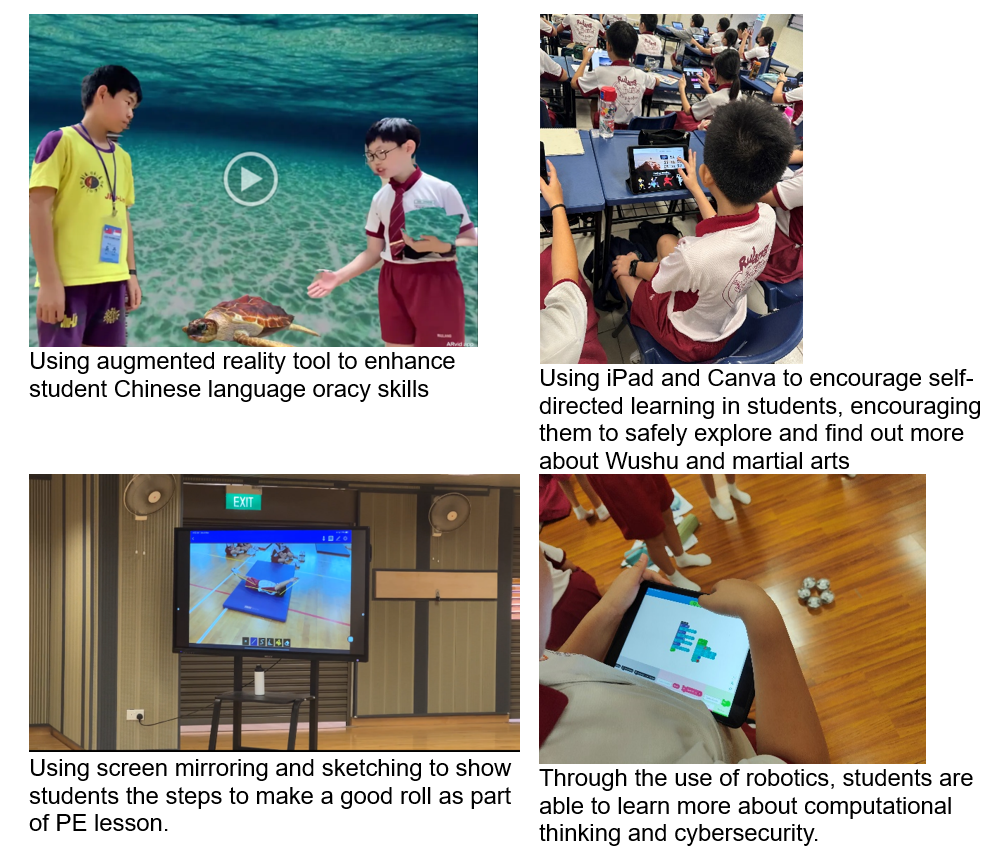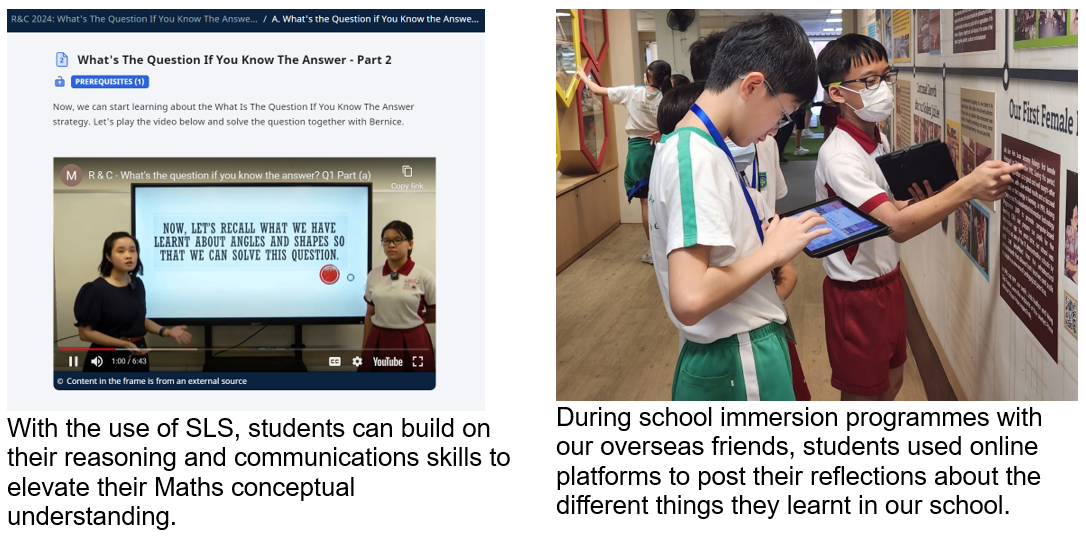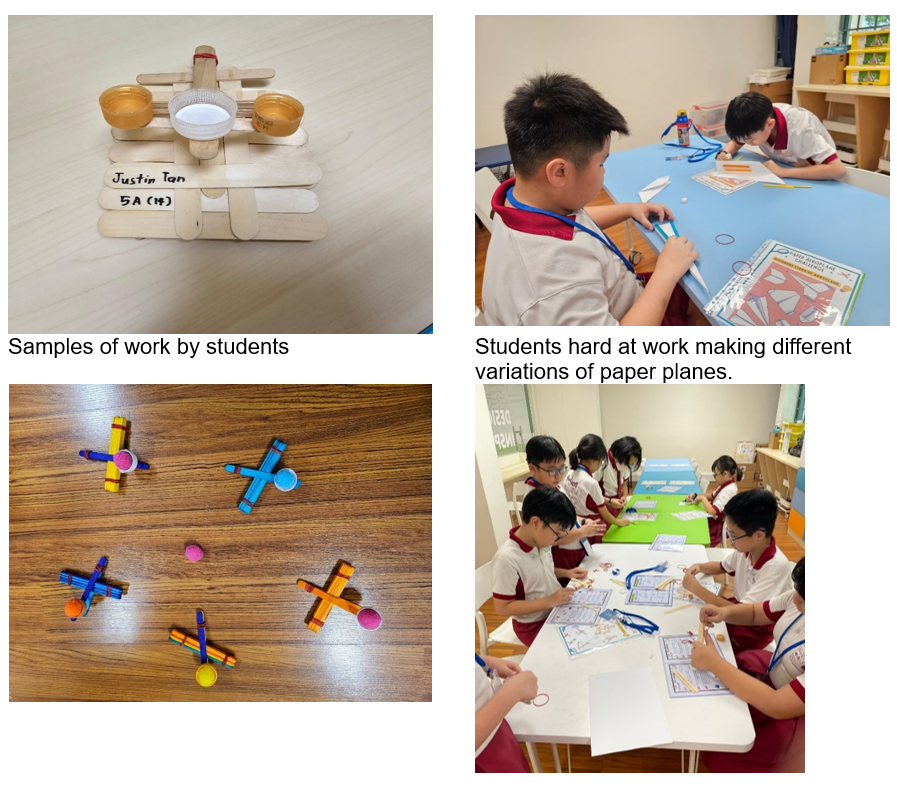Infocomm Technology (ICT)
ICT
Aligned with the MOE EdTech Masterplan 2030 and the school’s vision, the ICT Committee aims to nurture scholars of tomorrow, well-equipped with emerging 21st-century competencies (E21CC) and digital literacy. The goals of the Rulang EdTech implementation plan are:
· EdTech as a capability multiplier to foster E21CC and Digital Literacy
· EdTech to transform learning environment
· Teachers as designers and facilitators of tech-enabled learning experiences.
· EdTech to personalise learning and provide individualised feedback
Digital Literacy
Digital Literacy (DL) is defined as a set of knowledge, skills and dispositions that would help Rulangnites to be confident, critical and responsible users of digital technologies for information, communication and problem-solving. Students will acquire digital skills across four components in the Find Think Apply Create framework.

The digital competencies are integrated into the curriculum across all levels to make the learning more relevant and authentic for the students. The key programmes include:
|
Level |
Programme |
|
Primary 1 |
Project Work – Kubo Planner |
|
Primary 2 |
Project Work – Little Programmers |
|
Primary 3 |
Special Programme – Little Coders |
|
Primary 4 |
For all: Code for Fun |
|
AEP: Micro:bit - Smart Homes |
|
|
For selected pupils: Prototyping Smart Devices |
|
|
Primary 5 |
For all: Special Programme – Young Entrepreneurs |
|
AEP: Micro:bit – Solar cars |
|
|
For selected pupils: Arduino – Making accessibility devices |
|
|
Primary 6 |
For all:
Post-PSLE - Drone exploration |
e-Pedagogies – Teachers as designers and facilitators of tech-enabled learning experiences
The school embraces e-Pedagogies to nurture self-directed and collaborative innovators, with teachers serving as designers and facilitators of tech-enabled learning experiences. This approach is integrated into the school’s standard processes, encompassing the delivery of lessons and the development of process skills for knowledge acquisition, as well as the promotion of critical, adaptive, and inventive thinking.
Teachers apply Key Application of Technology (KAT) as the core pedagogical consideration, guiding them to leverage the affordances of technology to enhance learning. Departments and teachers leverage the Student Learning Space (SLS) as a curriculum resource hub to enrich their teaching and learning practices.


Cyber Wellness
The school offers an extensive cyber wellness programme that spans various platforms and avenues, aimed at promoting safe and responsible online behavior among students. The key platforms include:
· Cyber Wellness Week
· Assembly talks
· Cyber Wellness Corner
· FTGP
· Cyber wellness ambassadors are engaged to raise awareness about cyber wellness among students through the creation of short video clips, pamphlets, etc.
Maker Education
Maker Education aims to:
· Provide students with opportunities to engage in hands-on and active learning
· Develop students’ critical, adaptive and inventive thinking skills
· Develop students’ communication, collaboration and information skills
· Foster students’ interest in Science, Technology, Engineering and Mathematics (STEM)
MakerSpace @ Rulang is a hub for creative and inventive thinking, experimentation, design, and bringing their ideas to life. A maker challenge will be held regularly during recess for each level, providing students with the opportunity to participate and complete the challenge during this time.


